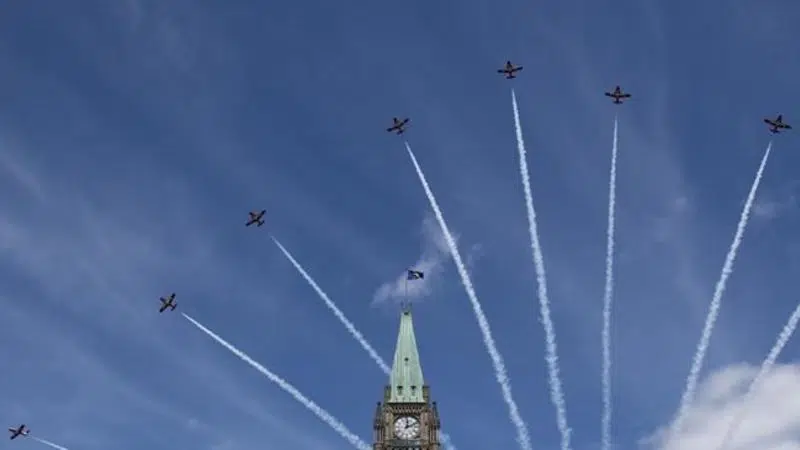
Snowbirds aerobatics team to return to Canada after crash in U.S.
OTTAWA — The Canadian military’s Snowbirds aerobatics team is returning home after a crash grounded the planes in the U.S. for more than a month.
Military investigators are still trying to determine why one of the Snowbirds’ famous Tutor aircraft crashed on Oct. 13 prior to an airshow at the Atlanta Speedway in Georgia, but the Royal Canadian Air Force says it is now confident enough to fly the planes back to Canada.
Capt. Kevin Domon-Grenier sustained minor injuries when he ejected from the plane, which crashed into a farmer’s field. No one else was hurt.
Once the Snowbirds return to their home base in Moose Jaw, Sask., there will be another investigation to identify the cause of the crash and the risk of another incident before the team can get back into the air.
